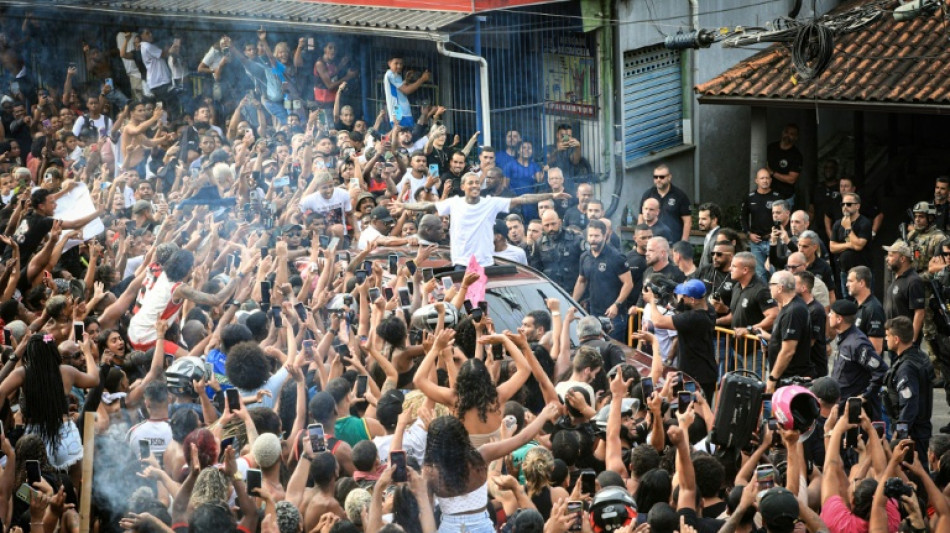
RBGPF
0.1000


The arrest of a popular funk singer in Brazil on suspicion of glorifying a powerful crime gang has revived a long-standing debate over the criminalization of a genre born in Rio de Janeiro's gritty favelas, or slums.
Unlike its US namesake, which was popularized by James Brown, Rio funk borrows more from hip-hop, blended with samba and other Brazilian rhythms.
The lyrics, seen by many as celebrating favela drug lords, have repeatedly led to calls for songs to be censored.
Last week, MC Poze do Rodo, one of the genre's best-known artists with 16 million followers on Instagram, was arrested on charges of glorifying crime and having links to Comando Vermelho (CV), one of Brazil's biggest gangs.
The authorities said his arrest aimed to send a message to those "who romanticize and help spread narcoculture."
The police argue that Poze's music "clearly condones" drug trafficking and illegal use of firearms and point to concerts held "exclusively in areas dominated by CV, with a notable presence of traffickers armed with high-caliber weapons."
After five days in preventive custody, the 26-year-old singer was released on Tuesday to a rapturous welcome from waiting fans, who swarmed his car in a column of motorbikes.
Police fired tear gas and stun grenades to disperse the crowds.
Speaking afterwards, the singer claimed he was the victim of police discrimination.
"Rio de Janeiro police don't like me... because I'm black? Because I'm from a favela?"
- 'Singers are not criminals' -
Marlon Brendon Coelho Couto was born in the favela of Rodo, one of the biggest in western Rio.
He has admitted to selling drugs in his youth but says that he abandoned crime to devote himself to music.
Police footage of his arrest at his current home in the upmarket Recreio dos Bandeirantes district, cuffed and shirtless, surrounded by heavily armed officers, caused an outcry among his fans.
Fellow musicians took part in a campaign for his release, organized by his wife, influencer Viviane Noronha, on the grounds that "funk singers are not criminals."
Erika Hilton, a Congress member, argued that by arresting Poze the authorities were seeking to "project all the sins of the world onto black people."
But many rejoiced at seeing the star behind bars, including former far-right president Jair Bolsonaro, an ex-army captain, who posted a picture of the singer with a clown emoji on his Instagram account.
- Arresting the messenger -
Funk describes the reality of life in Rio's crime-blighted favelas.
Poze's lyrics have regularly caused controversy.
In his 2023 track "Homenagem Pra Tropa do Rodo," he pays tribute to men killed "shooting for Comando Vermelho."
The debate surrounding funk's role in crime mirrors long-standing discussions in the United States over the links between rap and violence in Black communities.
Over a decade ago, authorities in the northeastern Brazilian city of Fortaleza passed a law banning venues from hiring artists that incite violence.
Similar anti-Oruam bills, as they are known after the rapper son of a famous drug lord, are now also being debated by several other cities and state parliaments.
Danilo Cymrot, a doctor in criminology at the University of Sao Paulo, pointed to a "gray area" in the definition of glorification of violence, relating to artistic content.
"The artist doesn't necessarily agree with his lyrics," Cymrot, author of a book about Rio funk, said.
He added that "oftentimes, the police and the judiciary have a hard time understanding funk as a work of art."
As a result, he said, the artist's origins are often used to determine whether he condones violence.
"It's less the message itself and more who is singing it."
R.Yeung--ThChM